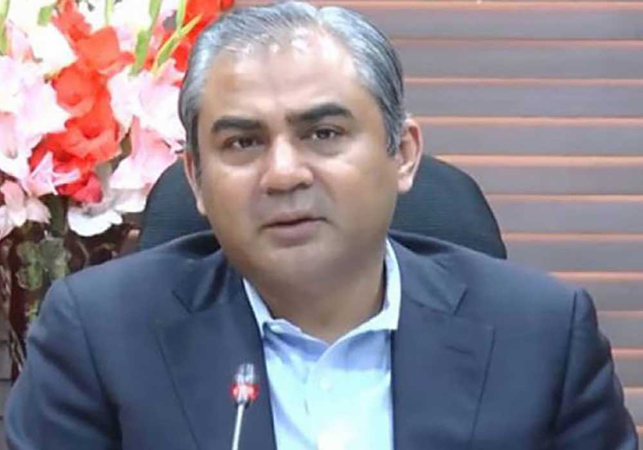Govt to block social media accounts of terrorists, curb illegal SIM usage


In collaboration with the Pakistan Telecommunication Authority (PTA), the government will work to block the accounts of terrorist groups. Provinces are also expected to implement a cohesive strategy to prevent the usage of illegal SIM cards.
The decision came during a crucial meeting of the National Action Plan (NAP) Coordination Committee on Tuesday. In the briefing, it was revealed that, as of October this year, a total of 7,984 intelligence-based operations had been conducted, resulting in the elimination of 206 terrorists.
During the meeting, it was decided to enhance collaboration between the National Counter Terrorism Authority (NACTA) and the provinces. A National Fusion Centre has also been established to facilitate more effective coordination.
In the upcoming meeting, senior officials from PTA and other relevant institutions will present effective mechanisms to combat terrorism and its supporting infrastructure.
Minister Naqvi strongly condemned the recent terrorist incidents in Balochistan and Khyber-Pakhtunkhwa (K-P), calling them “deeply regrettable and condemnable.”
He stated that to counter terrorism, the professional capabilities of Counter Terrorism Forces (CTFs) in these regions will be enhanced through full cooperation.
He further stated that efforts to strengthen law enforcement agencies such as the police and the Frontier Constabulary (FC) would be prioritised to improve security.
“To improve law and order, everyone must work together,” said Naqvi, adding that the police forces across all provinces would be equipped with modern technology to enhance their operational effectiveness.
The minister also announced that the federal government would address the urgent requirements of law enforcement agencies on a priority basis. He instructed that all institutions submit their reports on necessary resources to the Ministry of Interior within seven days. NACTA, he said, would take a leading role in the fight against terrorism, and reforms within the authority had already begun to restore its original mandate.
The meeting also reviewed the security measures in place for Chinese nationals in Pakistan. Naqvi directed that a foolproof security plan for the protection of Chinese citizens be fully implemented. Additionally, he stressed the need to provide enhanced support to the Coast Guard to combat narcotics smuggling in coastal areas.
The committee reviewed the progress on decisions made to combat terrorism and the establishment of a Counter-Terrorism Authority in Islamabad.
NACTA’s National Coordinator, Khalid Khattak, provided a detailed briefing on the progress of the second review meeting regarding the implementation of these measures.
Separately, the federal government has proposed a five-year imprisonment or a fine of Rs1 million for individuals found guilty of deliberately spreading fake news, as part of initial amendments to the cybercrime law.
The draft introduces significant changes to the Prevention of Electronic Crimes Act, 2016 (PECA), including the establishment of a Digital Rights Protection Authority (DRPA) with extensive powers to block or remove online content deemed harmful to public safety or state interests.
According to the draft, spreading false information, inciting fear, or disrupting peace through online platforms could lead to severe penalties.
“Individuals found guilty of such offences may face both imprisonment and fines,” reads the draft while also referring to those spreading fear and creating unrest.
The authority will be empowered to block or remove online material targeting law enforcement agencies, state institutions, or individuals. It will also have jurisdiction over content promoting religious or ethnic hatred, terrorism, and violence against the state. The law further specifies that content involving threats, false accusations, or pornography will also be subject to removal. Decisions by the authority can be challenged in a tribunal, ensuring a system of checks and balances.
The authority will consist of a chairman and six members, including three ex-officio members, tasked with upholding digital rights and maintaining cybersecurity across the country.
Recent Posts
- World
Sir Elton John prepares for the future amid health concerns
Sir Elton John has reportedly made plans for the future, purchasing a property near his…
- World
Iran warns US of strong response to threats of bombing
Iran’s Supreme Leader, Ayatollah Ali Khamenei, warned on Monday that the US would face a…
- World
Microsoft turns 50: leading the charge in AI and cloud computing
Microsoft marks its 50th anniversary this year, celebrating a legacy of innovation in the tech…
- World
Trump confident of tiktok deal before deadline
President Donald Trump expressed confidence in reaching a deal on TikTok before the April 5…
- Pakistan
Sugar import approval delayed as prices stay above government cap
The Pakistani government has yet to approve the import of raw sugar for re-export, amid…
- Lifestyle
Macaulay Culkin opens up about estrangement from his father and its impact
Macaulay Culkin has revealed the painful reason behind his decades-long estrangement from his father, Christopher…
Leave a Comment